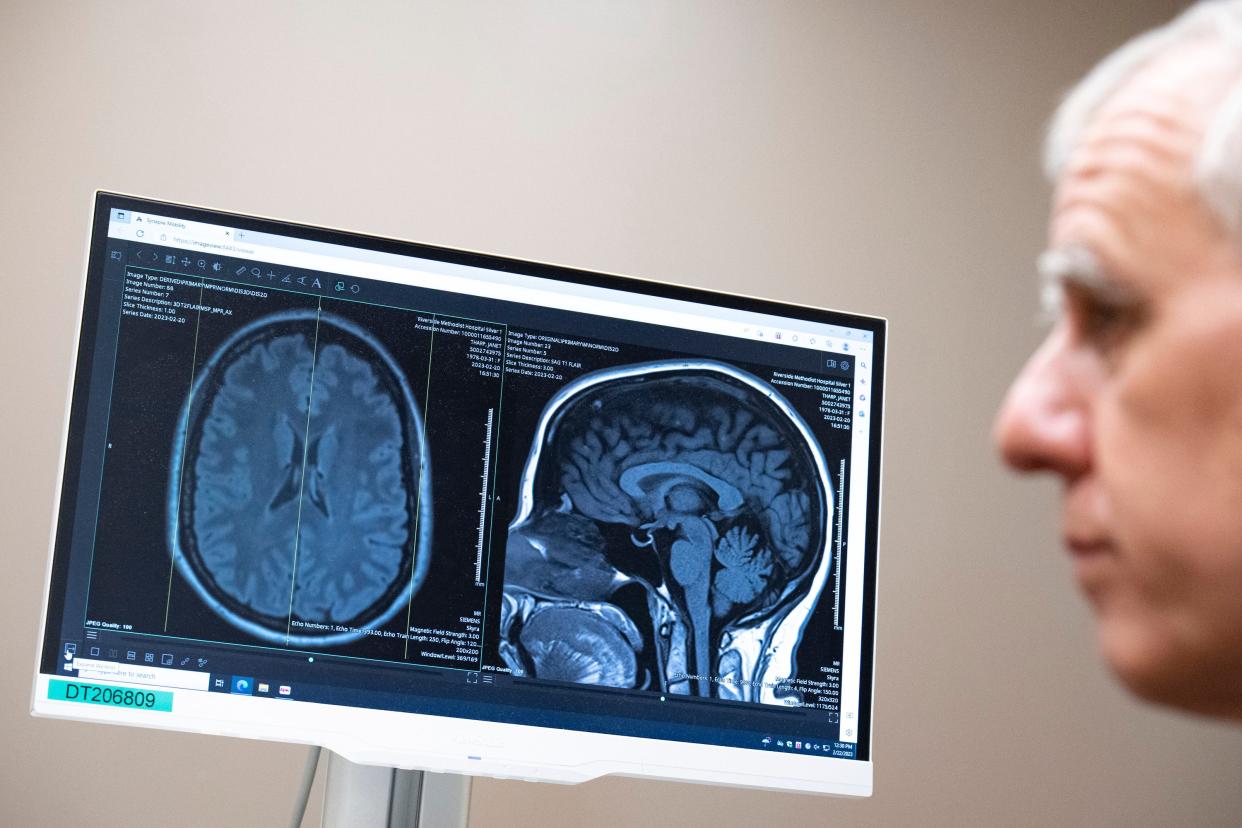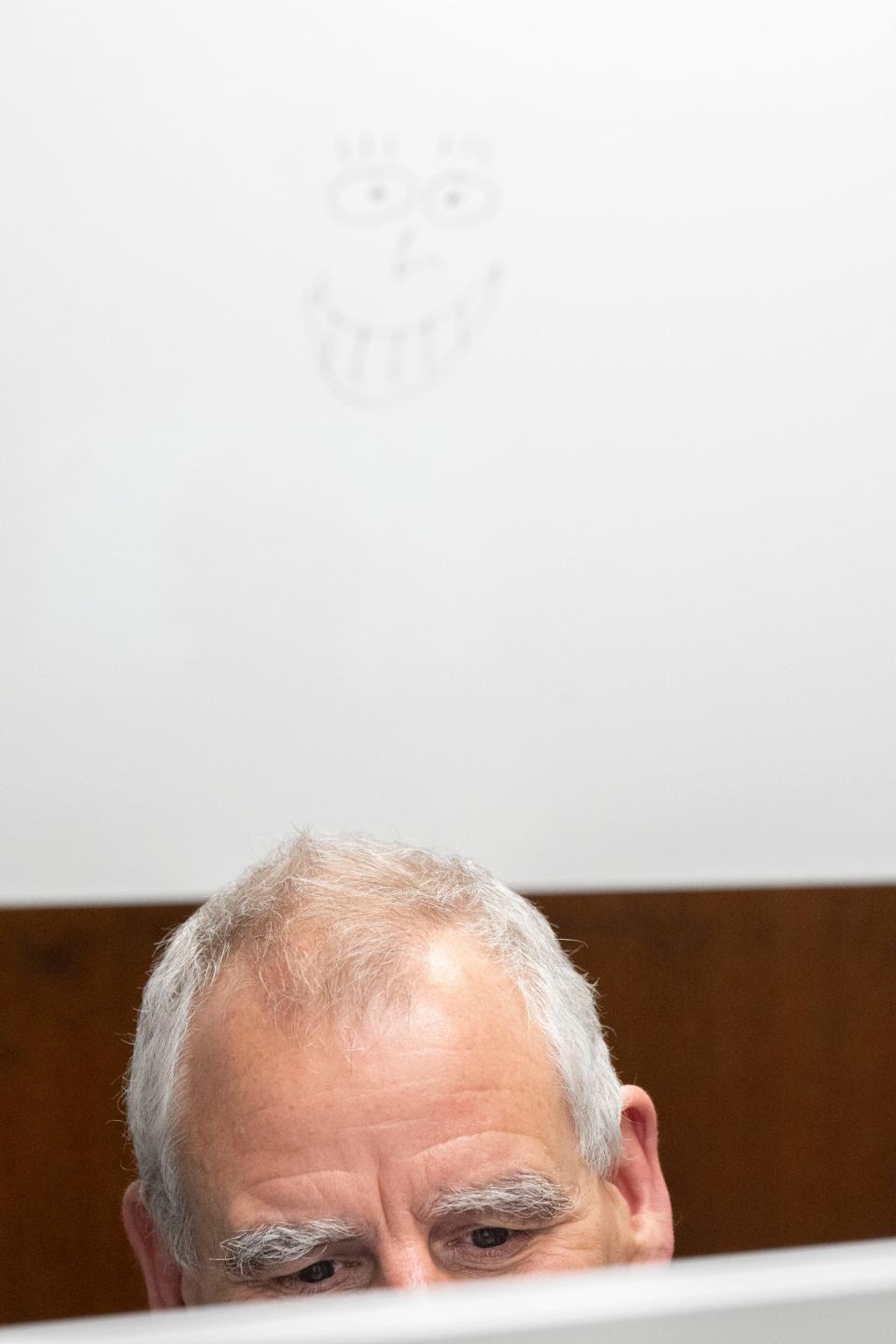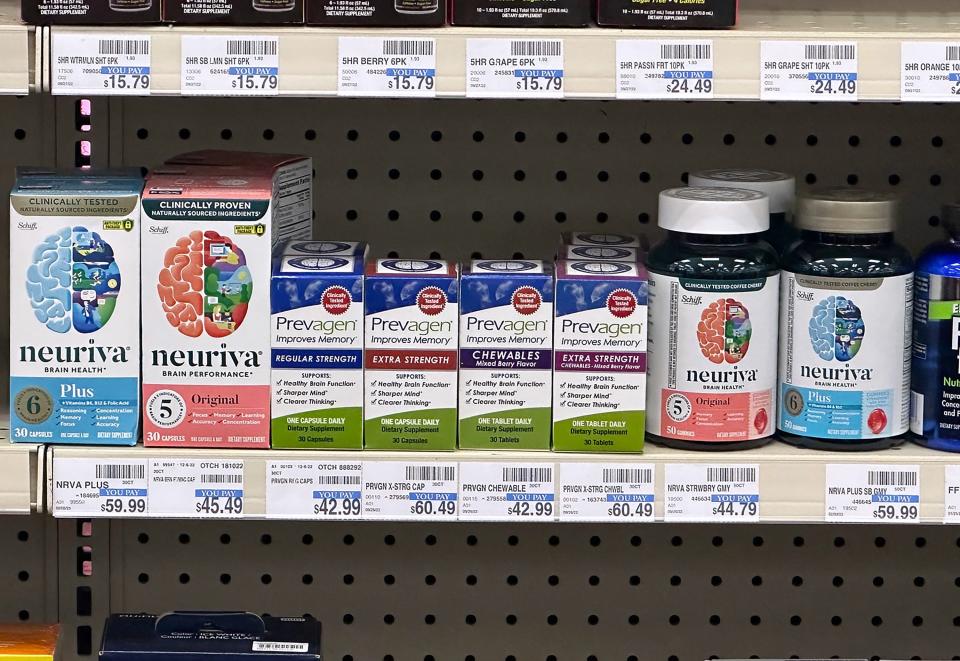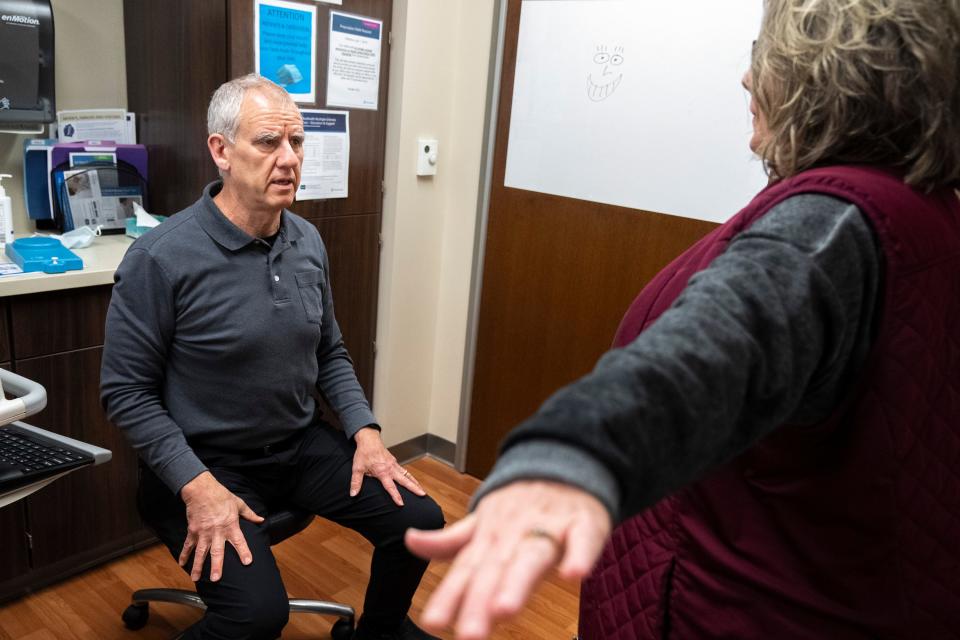Q&A: Columbus neurologist offers dos and don'ts to keep your mind sharp as you age

As new treatments for diseases like Alzheimer's and dementia emerge, the idea of maintaining a healthy brain as people age has gained attention.
Ohioans looking to keep their minds sharp as they age will be confronted with a wide variety of ways to do so. From often-advertised supplements to specific phone applications, games and even exercise, there's a lot of information available on what might work.
But not every option is created equal, said Dr. Geoffrey Eubank, chief of neurology for OhioHealth. Some methods for staying sharp have very little evidence to back them up, he said, while other ways are more proven and have stood the test of time.

The Dispatch sat down with Eubank for a question-and-answer interview on the topic. The following questions and his responses have been edited for clarity and length.
Do supplements like Prevagen and Neuriva work and would you recommend them to patients?
So, the very short answer is I've never advocated for somebody taking those, including my own mother when she started having memory loss issues. She asked me the same question. The primary reason for that, is there really isn't any good data that suggests that they help.

We always feel like: boy, wouldn't it be great if there was a pill or a supplement that I can take? And so far, nobody's come up with that.
So, when there's claims being made it almost sounds like there's solid research behind it. But there's not any legitimate, scientifically proven supplement that truly helps with memory loss ... I wouldn't take it myself and I wouldn't advise a friend or family member (to take it).
What about apps that claim to help improve focus and brain function?
If playing a game on your phone entertains you, then fine. There's not anything wrong with that.
I think the idea is nice. But I think, once again, there's not a lot of solid data that it actually makes a clinically meaningful difference. ... I don't know that it translates into improved functioning or prevention of (memory) loss down the road.
I think it turns out that the things that people are willing to sell us, (such as) the apps on the phones, the supplements, so far are just somewhat lacking.
Healthy mind:Do puzzles, brain games really keep older minds sharp?
When it comes to exercise, does that help?
So the first three things I would tell people to do would be exercise, the next would be exercise and the third is exercise. ... (It) really does seem to make a difference.

I would say exercise and staying active for the people that are able to is by far the most important thing that people can do
They've done some studies on exercise and migraine prevention ... and I looked at the conclusions, and the conclusion was the group that did the absolute best (at preventing migraines) was the group that did strength training ...
This drug that we use all the time for migraine prevention came in behind exercise.
Does listening to music or reading work?
There are some hints that those things may be more valuable. I think one of the things is passive entertainment is probably the worst thing we can do.
The cliché story about the guy who retires and sits back in his recliner with the remote is probably the worst thing because you're not active.

It's fine to watch TV as pure entertainment. But it doesn't really do anything to enrich your brain, whereas when you're reading there's more going on.
Health care:How senior centers improve the mental and physical health of their members
Is there anything people should not do if they're concerned about this?
Don't eat a lot of processed foods, don't eat a lot of high-fatty foods and things of that nature. Maybe a better way to put it is kind of focus your diet on more whole, natural foods.
The downside of that is it's more time intensive and it's more expensive and that's not in everybody's wheelhouse ...
Of course, I'll add that if people are smoking, it's ideal for them to stop. If they're drinking to excess, they should not do that as well.
More:Experts hope FDA approval of Alzheimer's drug is gamechanger for Ohioans with disease
mfilby@dispatch.com
@MaxFilby
This article originally appeared on The Columbus Dispatch: Q&A: What works for Ohioans who are trying to keep their minds sharp?

